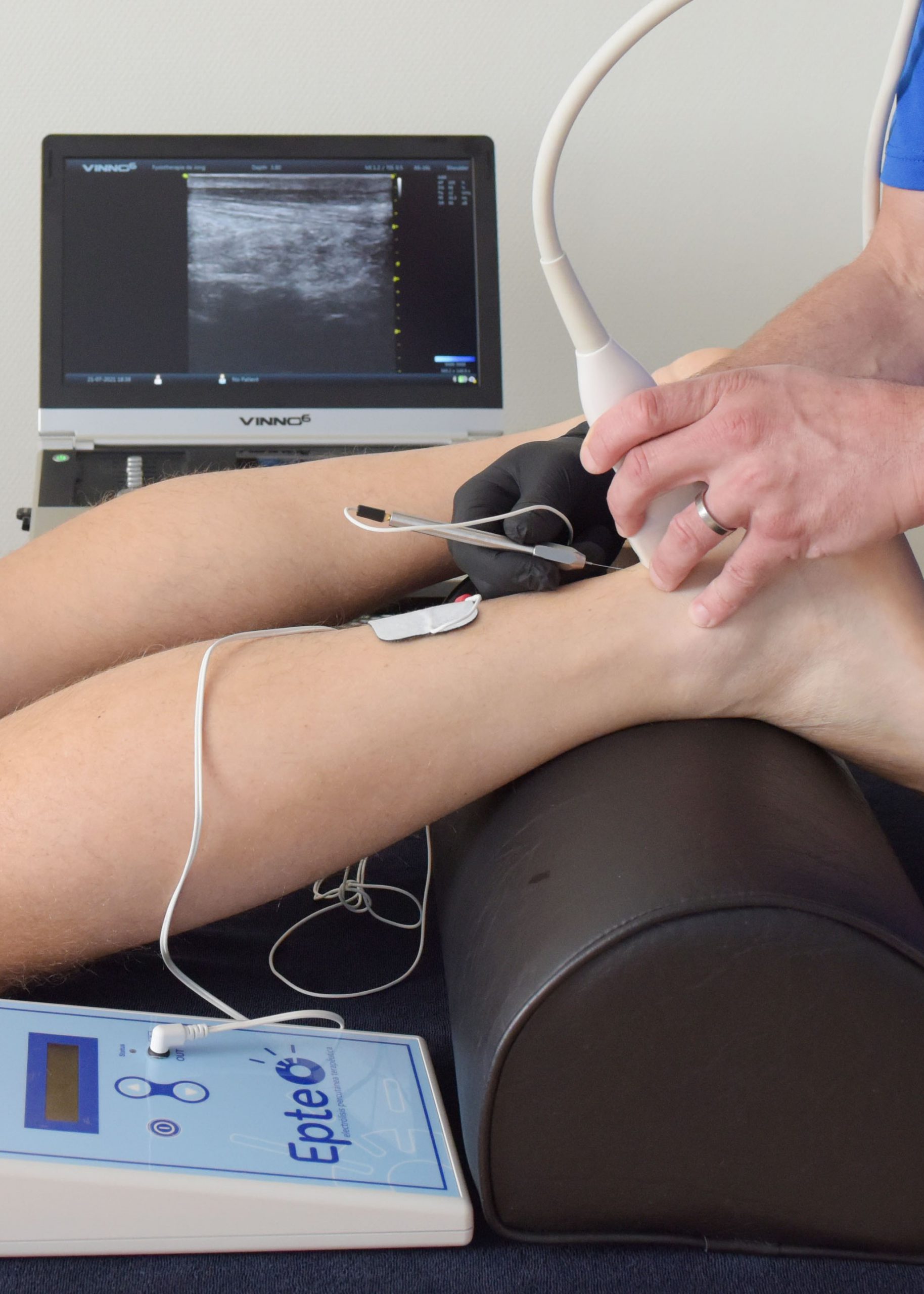EPTE is a new treatment method for chronic tendon injuries that stimulates connective tissue repair in the tendon.
EPTE
Why EPTE
EPTE is similar to shockwave in terms of mechanism of action. Shockwave uses high-frequency vibrations to stimulate connective tissue repair. In other words, a mechanical stimulus to recovery. EPTE also uses a mechanical stimulus, but also a light electrical current that triggers a chemical reaction in the tendon, which further stimulates tendon repair.
Have you been experiencing long-term pain in the patellar tendon, Achilles tendon, outer elbow, shoulder or heel spur pain? If so, EPTE may possibly be a solution for you.
Research and treatment
The examination also includes an ultrasound of the tendon. On the ultrasound images, the physical therapist can assess abnormalities of the tendon and determine what stage your tendon injury is in. This is taken into account in deciding whether treatment with EPTE makes sense for your injury.
EPTE is a form of ultrasound-guided percutaneous electrolysis. That is, a thin needle is inserted into the affected tendon under ultrasound guidance. The needle is then put under a very light current. Of course, this sounds like a painful treatment, but it is not that painful. Both the insertion of the needle and the light current give at most an uncomfortable feeling but is rarely really painful.
A treatment trajectory with EPTE usually covers 4-6 treatments, depending on the severity of the injury. During and after EPTE, the course consists of exercise therapy and other additional forms of treatment such as (medical) taping. The total recovery process usually takes 6 to 12 weeks.

